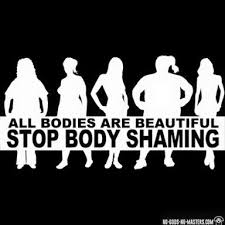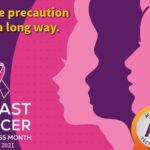

In the contemporary world, our perception of physical appearances tends to be significantly influenced by a multitude of factors, including the inevitable role played by the media, peer influences, as well as societal factors. Given such a context, it can be evidently understood how commonly many of us might experience a sense of dissatisfaction with our body image. And more so, it also creates a platform which encourages others to be able to judge or comment on a particular person’s body shape or size. Body shaming includes acts of sending provocative insults, and harassing others based on their inability to match up to the expectations related to stereotypical physical appearances, which can be in person, but is also becoming increasing prevalent through the internet.
Given the significant role of media influencing our perceptions of body image, be it the portrayals in films, television shows or other social media platforms, it is a common tendency for us to form comparisons which may not be realistic in nature, and as a consequence be unhappy with our body size or shape, or rather even feel dejected that we do not look like that particular model or actor/actress on the screen. In fact, such excessive comparisons based on the media portrayals can also create a sense of social pressure and competition to fulfil perceived demands and expectations of our physical appearance. Such social pressures can often be translated into a form of bullying known as body shaming.
We all deserve to feel good about ourselves. And in an attempt to reduce such prevalence of body shaming, there is a need to encourage media literacy, in an attempt to be equipped to recognize and assess the realistic quotient of whatever we are exposed to in the media. We all need to work towards creating a sensitized and aware society who is able to respect one’s own as well as others’ body image.
The Key Findings of the survey are:
- 90% women recognized that body shaming is a common behaviour.
- 84% participants reported that women tend to experience more body shaming as compared to men.
- 5% women reported having experienced body shaming at their school or work place.
- 5% women reported that their friends often tend to make negative comments about the way they look, be it in terms of their body weight, body shape, skin tone, hair, etc.
- 76% women felt that the media portrayals of beauty contribute towards promoting the prevalence of body shaming.
- 90% women believed that films and television shows often do tend to make fun of people who do not conform to the standard norms and expectations.
- 89% women reported feeling uncomfortable about their own selves when they read comments about other people’s appearances on social media platforms.
- 28% women reportedly find it difficult to stand up for themselves when someone criticizes their physical appearance.
- 31% participants reported that they sometimes don’t feel like facing the world because of what people would say about their physical appearance.
- 66% women believed that it is important to look good in order to feel confident.
- 62% women reported having felt anxious and nervous when people have commented on their looks and physical appearance.
- 67% women also reported feeling angry because of body shaming.
- 19% women reported feeling embarrassed about the way they look.
- 46% women admitted having passed negative remarks or comments about people’s appearances without their knowledge.
- 95% women believed that most people do not tend to realize that they indulge in body shaming.
- 97% women believed that the issue of body shaming needs to be addressed in schools.


Dr. Samir Parikh
MBBS, DPM, MD (Psychiatry)
Director – Mental Health and Behavioural Sciences
Fortis Hospital, Shalimar Bagh,
New Delhi – 110088
Ph: 011 4530 2222











